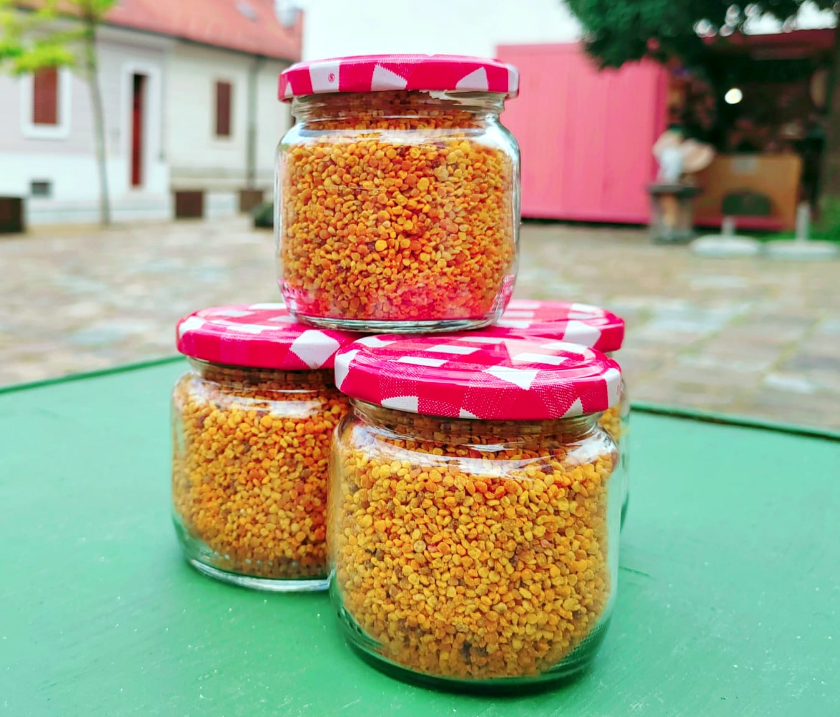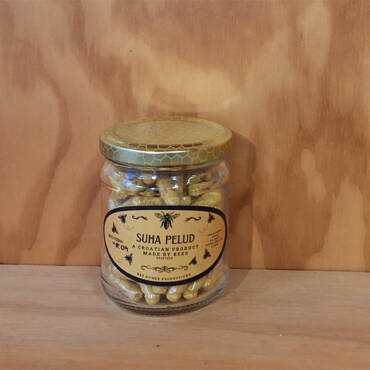Bee Pollen
Bee pollen is not the same as pollen blown by the wind that causes allergies. Bee pollen collected on beehives very rarely causes symptoms of allergies. It is actually the male flower seed that bees collect and mix with bee digestive enzymes. Bee Pollen is low in calorie but rich in protein, aminoacids, vitamins, minerals, enzymes, valuable fatty acids, carbohydrates and bioflavonoids that have antiviral, antibacterial effect, it helps lower cholesterol and strengthen the capillaries. It has properties that can stimulate organs, increase vitality and rejuvenation, speed up recovery and it is one of the favourite food supplements of top athletes.
It is best absorbed and used by dissolving it in lactic acids ( milk, yogurt, acidophilus, kefir, etc. ) taking it with vitamin C (lemonade, orange juice, tea with lemon) and of course mixed with honey, what we recommend to our customers.
Names of bee pollen in various languages
These are just some examples of names in various languages around the globe, and the names of bee pollen can vary depending on the dialect and local variety of the language. Additionally, there are specific names for bee pollen from different plants. For example, in English “cattail pollen” is used for cattails pollen, while “corn pollen” is used for corn pollen.
English: Bee pollen
French: Pollen d’abeille
German: Bienenpollen
Spanish: Polen de abeja
Italian: Polline d’api
Portuguese: Pólen de abelha
Russian: Пчелиная пыльца (Pchelinaja pyl’ca)
Japanese: ミツバチの花粉 (Mitsubachi no kafun)
Korean: 벌 꽃가루 (Beol kkotgaru)
Chinese: 蜂花粉 (Féng huāfèn)
Hindi: मधुमक्खी पराग (Madhumakhī parāg)
Arabic: حبوب اللقاح (Ḥubūb al-laqāḥ)
Hebrew: אבקה (Avaka)



